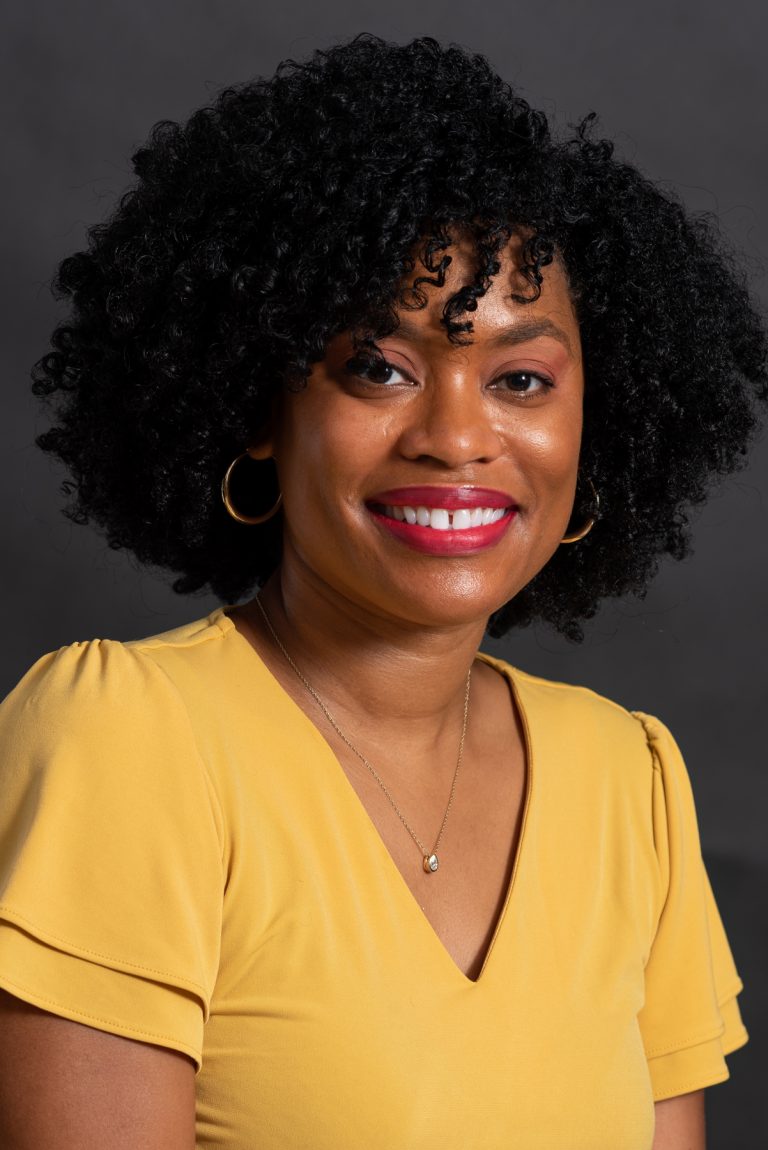
Carolina Graduate Certificate in Innovation for the Public Good
The Carolina Graduate Certificate in Innovation for the Public Good (CIPG) gives masters and doctoral students an educational pathway to explore modern changemaking and practice the skills they need to help create meaningful change in the world. The certificate is sponsored by three academic units: the College of Arts and Sciences, Gillings School of Global Public Health, and the School of Education.
CIPG provides students from any department with the mindset, tools and methods they need to work effectively across disciplines to solve complex problems. By earning the certificate, students become skilled in methods that they can apply to their doctoral or thesis research. CIPG also equips them with career-ready skills that they can use when working on multi-disciplinary teams in businesses, non-profits and government agencies that increasingly demand the ability to apply cross-sector, community-engaged practices.
Applications for our Spring cohorts open each year on Feb. 1 and close on Feb. 15, with decisions going out by March 1. Our Fall cohort application will open each year on Sept. 1 and close on Sept. 15, with decisions going out by Oct. 1.
Graduate-level training
The certificate provides graduate-level training that teaches students how to:
- Focus human-centered designs around the voices, experiences, wishes and aspirations of those affected by the innovation.
- Develop an understanding of their own experiences, strengths, motivations, and biases as changemakers.
- Engage their community in the co-design, implementation, evaluation and adaptive learning methods associated with developing innovative solutions.
- Build and sustain inclusive collaborations that support innovation for the public good.
CIPG offers a set of cross-disciplinary courses from:
-
- College of Arts and Sciences
-
- Gillings School of Global Public Health
-
- School of Education
-
- Hussman School of Journalism and Media
-
- Kenan-Flagler Business School
-
- School of Government
-
- School of Information and Library Science
-
- School of Social Work
CIPG courses emphasize evidence-based and creative problem-solving approaches, along with team-oriented, customer/community discovery methods, that students can use to develop solutions that address pressing human concerns. The learning journey is designed to help students move their ideas into action through the intentional development of mindset, knowledge and skills that transcend any single discipline.
The learning objectives of the Graduate Certificate in Innovation for the Public Good are for students to:
- Identify how to center innovation designs as a response to the voice, experiences, wishes and aspirations of those most directly impacted by innovation;
- Develop an understanding of one’s own experiences, intentions, strengths and limitations, motivations and biases as a changemaker relative to the impacted audiences;
- Identify, define and clearly analyze a problem, recognize opportunities, challenges and the assets of communities as they address the problem, and generate optimal solutions through the application of social innovation in practice;
- Understand how the context in which a problem is located and solution is imagined shapes and impacts the innovation design and implementation process;
- Recognize and critically assess the strengths and limitations of various social innovation approaches including knowing when a particular approach is most appropriate for a given context;
- Understand how to effectively engage stakeholders in co-design, implementation, evaluation and adaptive learning associated with the innovation;
- Understand how to build and maintain collaborations and partnerships in support of a shared mission over time as the innovation moves from design to accepted practice.
Innovation Methods, Tools, and Best Practices courses offer students explicit skill-building and skills covered can be applied to multiple disciplines and populations to innovate. These courses spend 50% of their courses covering any of the following four CIPG objectives or a combination of them.
- CIPG Objective #1: Identify how to center innovation designs as a response to the voice, experiences, wishes and aspirations of those most directly impacted by innovation
- CIPG Objective #3: Identify, define and clearly analyze a problem, recognize opportunities, challenges and the assets of communities as they address the problem, and generate optimal solutions through the application of social innovation in practice
- CIPG Objective #4: Understand how the context in which a problem is located and solution is imagined shapes and impacts the innovation design and implementation process
- CIPG Objective #6: Understand how to effectively engage stakeholders in co-design, implementation, evaluation and adaptive learning associated with the innovation
Social Innovation in Practice courses require students to build and apply CIPG objectives to real world case studies individually or as groups. These courses spend 50% of their courses covering CIPG objectives (any of the 7) and 50% or more of the assignments in the course focus on applying CIPG objectives individually or in groups.
The certificate program requires students to take nine credits:
- Core Course: 3 credits in Design Thinking for the Public Good
- Elective Course: 3 credits in Innovation Methods, Tools and Best Practices
- Elective Course: 3 credits in Social Innovation in Practice
CIPG students are required to take at least 3 credits outside of their home school. For example, if you are a Gillings student and take HBEH 748 and HPM 890, which are both offered through Gillings, you will need to take your final 3-credit course outside of Gillings.
The program offers a set of cross-disciplinary courses from:
- College of Arts and Sciences
- Gillings School of Global Public Health
- School of Education
- Hussman School of Journalism and Media
- Kenan-Flagler Business School
- School of Government
- School of Information and Library Science
- School of Social Work
Graduate students from any of the UNC-Chapel Hill’s graduate programs, including the professional schools and College of Arts and Sciences, are encouraged to apply.
Prerequisites for Admission
- Baccalaureate degree from an accredited undergraduate institution.
- Currently enrolled as masters or doctoral student at UNC-Chapel Hill.
Application Process
Graduate students seeking admissions must complete an application that includes signatures of their degree advisor and academic coordinator. The application form for the certificate program are available, and students my apply at any time. The application form will ask applicants for:
- Name, contact information, graduate program and department, degree sought, expected graduation date, and advisor’s name.
- A short statement of interest and how the program will support their learning goals.
- A list of courses that they expect to take on a year-by-year basis to meet the CIPG requirements.
If you have interest in the CIPG program or would like to learn more, we encourage you to send an email with a specific question to cipg@unc.edu.
Ready to apply?
- Download and complete the departmental approval form [PDF] with departmental signatures before completing the online application.
- Prepare a statement of interest (500 words maximum) that answers the questions noted in the application form.
- Complete the online application.
Deadlines:
Spring: Opens February 1, closes on February 15, decisions sent by March 1
Fall: Opens September 1, closes on September 30, decisions sent by October 15
Please review the CIPG approved courses list for 2024 [PDF].
Who can apply to the certificate program?
Any master’s or doctoral student currently enrolled at UNC-Chapel Hill can apply.
How long does it take to complete the certificate program?
We expect students to complete the certificate over a two-year period, although it is possible to complete it in a shorter timeframe.
Is there a required course sequence?
There is no required course sequence for completion, although we encourage students to consider taking the core course (HBEH 748: Design Thinking for the Public Good) early in the certificate.
During which semesters are the courses offered?
The core course (HBEH 748: Design Thinking for the Public Good) is offered during the fall and spring semesters. Other elective courses are offered during the fall and spring semesters.
Can a student apply the same course credits toward CIPG and their degree credentials?
In 2021, the faculty Administrative Board of The Graduate School, with the support of the Office of the Executive Vice Chancellor and Provost, approved policy changes that will allow greater double counting/crossover of credits between graduate degree programs and certificate programs. Students in CIPG may now fully double count certificate credits and degree credits at the discretion of their degree program. Please note: At least 3 credits for the certificate must be taken in a school separate from the students’ home school. For example, if you are a graduate student at Gillings, 6 credits can come from courses taught in Gillings but 3 credits need to be taken outside of Gillings. Please reach out to your academic advisor if you have any questions.
Is CIPG offered as a joint program with another university?
No, at this time the program is only offered at UNC-Chapel Hill.
Is there a distance learning option?
Currently, the certificate program is only offered on campus at UNC-Chapel Hill.
Who are the academic sponsors of the certificate?
The three sponsoring academic units are the Department of Public Policy in the College of Arts and Sciences, the Gillings School of Global Public Health, and the School of Education.
What are the key deadlines?
Applications for our Spring cohorts open each year on Feb. 1 and close on Feb. 15, with decisions going out by March 1. Our Fall cohort application will open each year on Sept. 1 and close on Sept. 15, with decisions going out by Oct. 1.
How will you decide which students to accept?
We will use a holistic review process, and each application will be reviewed by at least two reviewers. Reviewers will include certificate leadership and advisory board members. We will assess students based on academic diversity, the feasibility of certificate completion in their proposed course of study, and the quality of their personal statements.
If I’m not accepted into this next cohort, can I reapply in a future semester?
Yes, if you are not accepted into the initial cohort for which you applied you can reapply in future semesters.
I’m interested in taking some of these courses listed under certificate requirements before I apply for the certificate. Is that recommended?
Yes, we recommend that you enroll in certificate courses that you are interested in now. Many of them have limited enrollment for certificate students, so there is no guarantee that you will be able to get into courses in a future semester (aside from HBEH 748). For HBEH 748, priority will be given to enrolled certificate students. There is a waiting list for non-certificate students. If you would like to be added to that waiting list, please fill out this form.
How do I know whom my academic coordinator and degree advisor are?
Your academic coordinator is the person in your department/school who signs off on degree requirements/graduation paperwork. The degree advisor is typically the faculty advisor/mentor assigned to you. If you are a student without an assigned advisor/mentor, your program director can serve as the degree advisor for the purposes of the CIPG application.
For the CIPG application, can I submit electronic signatures rather than original signatures?
Yes. We recommend sending the PDF document to your academic coordinator and degree advisor and having them sign electronically.
I’d like to submit a course substitution request for either the Innovation Methods, Tools and Best Practices requirement or the Social Innovation in Practice Requirement. How might I do that?
In order for your course substitution request to be considered by the CIPG Advisory Board, please review the criteria below and fill out our course substitution form. Our CIPG Advisory Board reviews these requests on a rolling basis. To inquire about the status of your request please email cipg@unc.edu.
The learning objectives of the Graduate Certificate in Innovation for the Public Good are for students to:
- 1. Identify how to center innovation designs as a response to the voice, experiences, wishes and aspirations of those most directly impacted by innovation;
2. Develop an understanding of one’s own experiences, intentions, strengths and limitations, motivations and biases as a changemaker relative to the impacted audiences;
3. Identify, define and clearly analyze a problem, recognize opportunities, challenges and the assets of communities as they address the problem, and generate optimal solutions through the application of social innovation in practice;
4. Understand how the context in which a problem is located and solution is imagined shapes and impacts the innovation design and implementation process;
5. Recognize and critically assess the strengths and limitations of various social innovation approaches including knowing when a particular approach is most appropriate for a given context;
6. Understand how to effectively engage stakeholders in co-design, implementation, evaluation and adaptive learning associated with the innovation;
7. Understand how to build and maintain collaborations and partnerships in support of a shared mission over time as the innovation moves from design to accepted practice.
Innovation Methods, Tools, and Best Practices courses offer students explicit skill-building and skills covered can be applied to multiple disciplines and populations to innovate. These courses spend 50% of their courses covering any of the following four CIPG objectives or a combination of them.
- CIPG Objective #1: Identify how to center innovation designs as a response to the voice, experiences, wishes and aspirations of those most directly impacted by innovation
- CIPG Objective #3: Identify, define and clearly analyze a problem, recognize opportunities, challenges and the assets of communities as they address the problem, and generate optimal solutions through the application of social innovation in practice
- CIPG Objective #4: Understand how the context in which a problem is located and solution is imagined shapes and impacts the innovation design and implementation process
- CIPG Objective #6: Understand how to effectively engage stakeholders in co-design, implementation, evaluation and adaptive learning associated with the innovation
- Social Innovation in Practice courses require students to build and apply CIPG objectives to real world case studies individually or as groups. These courses spend 50% of their courses covering CIPG objectives (any of the 7) and 50% or more of the assignments in the course focus on applying CIPG objectives individually or in groups.
How many courses may I request course substitutions for?
One.
I’m an MPH@UNC student. Am I able to enroll in the certificate?
Unfortunately, MPH@UNC students are not able to apply for or enroll in the certificate.
I’m an MPH@UNC student. Am I able to take the HBEH 748 course even if I’m not part of the certificate?
Unfortunately, MPH@UNC students are not able to take residential courses even if they are offered in an online (i.e. Zoom) format.
General: cipg@unc.edu
Faculty Director: Daniel Gitterman, Duncan MacRae ’09 & Rebecca Kyle MacRae Professor of
Public Policy, danielg@email.unc.edu
Interested in joining our program?
Carolina Seminar on Innovation for the Public Good
The Carolina Seminar on Innovation for the Public Good (formerly the Carolina Seminar on Social Innovation) sits at the cross-section of the two core strategies of UNC’s overarching “Blueprint for Next” strategic framework: “Of the Public, for the Public” and “Innovation Made Fundamental.”
This seminar will play a catalytic role in amplifying the mission of Carolina by providing an educational pathway for our faculty and students to explore modern changemaking and practice the skills necessary to contribute toward meaningful change in the world. Participants will explore evidence and promising based creative problem-solving approaches and early, team-oriented, customer/community discovery methods to develop solutions that address pressing human concerns.
Daniel Gitterman
Duncan MacRae ’09 and Rebecca Kyle MacRae Professor of Public Policy
Bill Romani, PT, PhD
Director of Design and Public Innovation
Melissa Edwards, MPP
Program Coordinator
Community Partners
Interested in working with us as a community partner? Instructors for the Design Thinking for the Public Good course are looking for community partners who are working to solve a complex challenge and would like to work with an interdisciplinary team of UNC grad students and stakeholders. Learn more.
Sponsoring academic units



Board of Advisors

Daniel Gitterman

Bill Romani, PT, PhD

Maureen Berner

Liz Chen

Erica Johnson

Steve Knotek

Kurt Ribisl

Brian Sturm

Marjorie White

Kristin Wilson

Meg Zomorodi

Allessandra Bennett Lowery


 | UNC-CH
| UNC-CH
